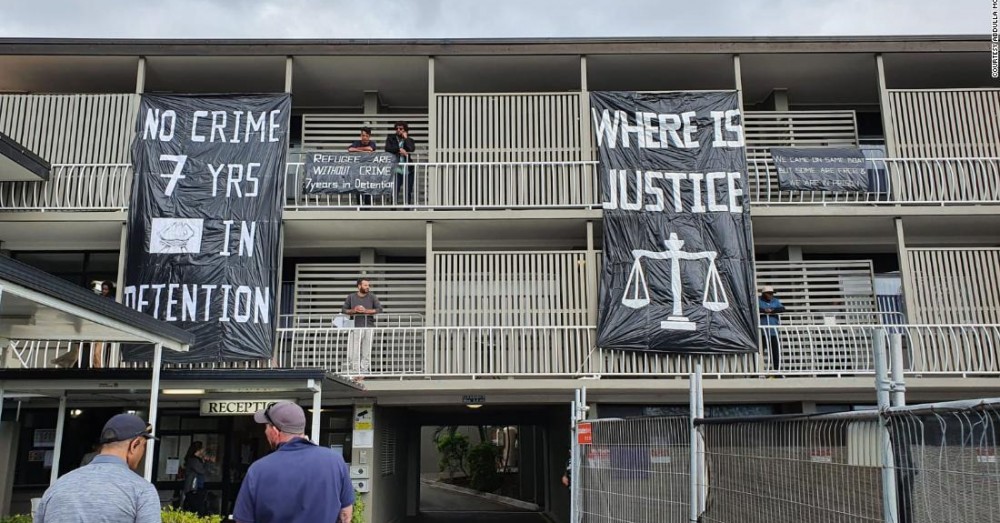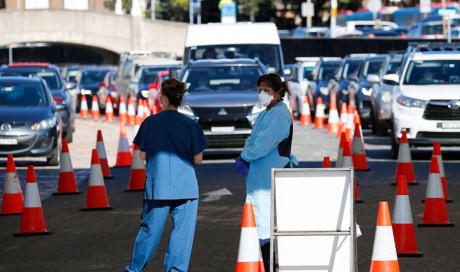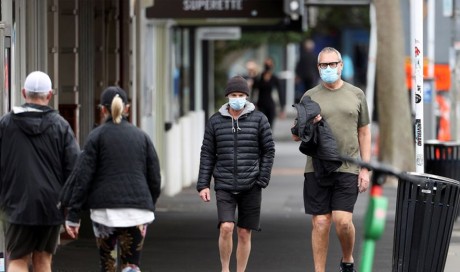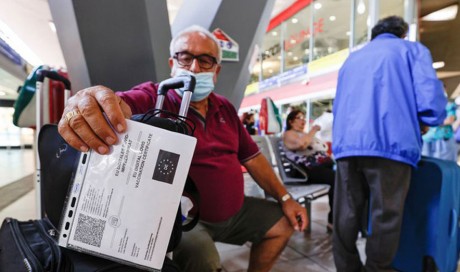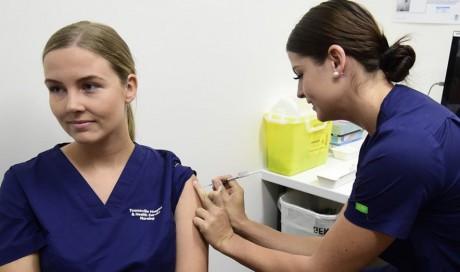Every day, the men unfurl large pleas for help over the balcony railings of their hotel room and stand in silence as traffic roars along the main road of the Australian city they're trapped in.
Their signs are mostly made from bin bags stuck together with tape, and secured to the railing with shoelaces. "Where is justice?" one reads. These men are not hotel guests, but refugees and asylum seekers who have been in Australian immigration custody for seven years. Many arrived in Australian waters in 2013, after the government introduced offshore immigration processing.
They were detained on the remote islands of Manus in Papua New Guinea (PNG) and on Nauru in the Pacific, in conditions once described by the United Nations as "harsh" and "inadequate." In 2016, Amnesty International called Nauru an "open-air prison."
All are suffering the effects of prolonged, indefinite detention and were brought to Australia last year for urgent medical treatment.
But some say the conditions in the Brisbane hotel are worse than PNG or Nauru.
"You're in prison in here. In PNG, you have a little bit of freedom. You can move around. There is no ABF (Australian Border Force), no security guards around you," said Farhad Rahmati, an Iranian refugee who was transferred to Australia from PNG last July.
For months, the 120 or so men inside the hotel kept quiet about their plight. However that changed in March, when the number of coronavirus cases in Brisbane started rising. Fearing the virus would enter the hotel via the guards who come and go, they crafted signs large enough to be seen from the street.
As people noticed their pleas, weekly demonstrations began outside the hotel. These demonstrations have now escalated into a blockade by human rights activists who are demanding the men be freed.
The standoff between cellphone-armed protesters and security guards has cast unwanted attention on an Australian immigration policy that has long been, by definition, focused offshore.
Now it's playing out in the heart of one of Australia's largest cities in a 4.5-star hotel that only a few months ago was still accepting paying guests.
Offshore detention
In 2018, it was reported that Australian Prime Minister Scott Morrison had a model migrant boat on his desk bearing the words: "I stopped these."
Before taking high office, Morrison helped strengthen the country's border protection policies, which mandate that people arriving by boat will be processed offshore -- and even if they are found to be refugees, they will never be settled in Australia.
The government says this policy removes demand for people smugglers and prevents deaths at sea. Boat arrivals peaked in 2012, when more than 17,000 passengers arrived from Iran, Afghanistan, Myanmar and other troubled nations, via hubs such as Indonesia and Malaysia.
Few boats arrive now, but human rights advocates say the policy has created a cohort of prisoners confined to islands offshore. As the detainees' mental health deteriorated, advocates pushed for a law to allow doctors to decide if they should be brought to Australia for medical treatment. The medevac bill was passed in March 2019, opening the door for transfers, but the government abruptly closed it again after winning an election that May, citing national security concerns.
Before that happened, almost 200 men had been brought to Australia under the medevac law, including some who were suicidal. Others had brain injuries, undiagnosed gastrointestinal bleeding, heart conditions and broken bones that needed surgery.
For months, many of those detainees lived in one of the Brisbane hotel's three buildings, confined to the upper floors -- and beyond the view of paying guests. Before the coronavirus outbreak, they were allowed visits from pre-approved guests. Now, they're only allowed out for medical appointments, escorted by guards.
In March, due to the pandemic, more space was needed for social distancing in Brisbane Immigration Transit Accommodation (BITA), the main immigration detention centre on the city's outskirts. About 40 more detainees were moved to the hotel -- and their rooms opened onto a balcony with a view of the street.
Share This Post

